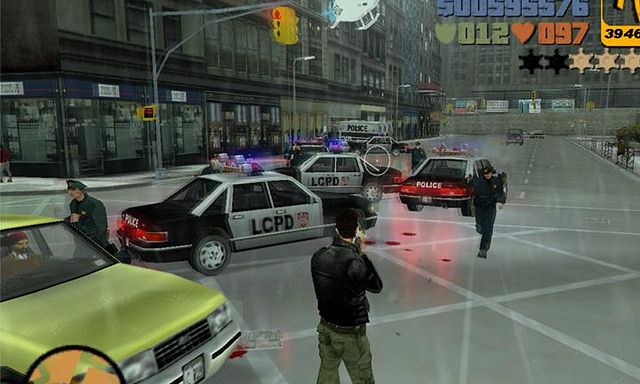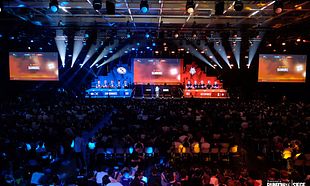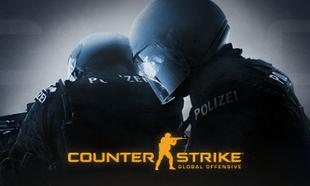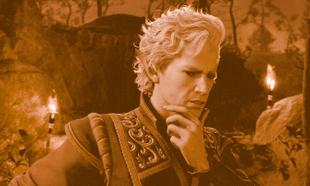With the increasing processing and graphical power of consoles in the late 1990s, games became more ambitious in size and scope.
‘Mario 64’ and ‘Ocarina Of Time’ let players explore fantastical worlds, and ‘Driver’ in 1999 let players re-enact their favourite 70s crime movies.
However, the open-world game was only in its burgeoning stages; it needed a trailblazer and something that would rewrite the rulebook.
To bring it back to the punk metaphor, it needed its own ‘London Calling’.
That game is ‘Grand Theft Auto III’.
The ’90s were a good decade for the crime thriller, with the works of David Fincher and Martin Scorsese in particular helping redefine the concept of a city as a character.
In the unnamed city from ‘Se7en’ the ever-present rain and grey colour palette made the city just as much a character as Brad Pitt or Morgan Freeman, and in the cinema of Scorsese, as cliché as the observation now is, New York City is a character in his crime epics.
The masterstroke of ‘Grand Theft Auto III’ was making Liberty City just as much of a character as Claude.
The grey, murky and sleazy feel of Liberty City looks great by car, but the true game-changing moment came when you press triangle on the controller and get out of the car.
It is difficult to imagine for younger readers, but being able to exit your car and walk around a sandbox environment was considered an earth-shattering moment, akin to the fatalities in ‘Mortal Kombat’ in the early 1990s.
In the present day, sandboxes are plentiful and dime a dozen.
In 2001, the freedom to do whatever was revolutionary.
If you saw a taxi, you could hijack it and pretend to be Robert De Niro.
If you saw a police car, you could shoot it and start an impromptu police chase.
If you saw a gang shootout in the middle of the street, you could drive your car into the middle of the gunfire in an attempt to act as a peacemaker.
The sky was the limit in terms of what you could do with 'Grand Theft Auto III', and over 20 years later, it's easy to take for granted how extraordinary this was for the time.
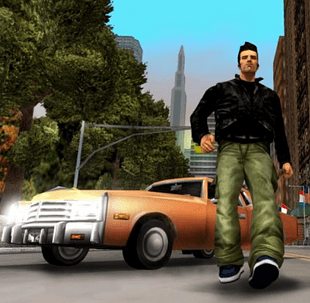
2001 also saw the release of 'Metal Gear Solid 2: Sons Of Liberty' which subverted players expectations with its exploration of meme culture (seriously!) and famous protagonist switchout.
In essence, these two games represented the next leap forward for gaming, and in the context of 2001, it was the dawn of a new millennium where anything was possible on the technology front.
'Grand Theft Auto' was an established franchise before the third entry, but it was the success of this game that firmly put Rockstar Games on the map as the developer for Generation X.
Give Me Convenience or Give Me Death
The top-down 'Grand Theft Auto' games already occupied column inches for their violence, but adding the choice for players to go on-foot and carry out the violence added an extra layer of controversy.
It is one of the worst-kept secrets in gaming that Rockstar hired disgraced PR guru Max Clifford to help make 'Grand Theft Auto' the target of parents and tabloids everywhere, but simply playing 'Grand Theft Auto III' was scandalous enough in itself.
Players who picked up the game as the botched HD remaster last year may struggle to see what the fuss was about, but context is important: no game let you do what 'Grand Theft Auto III' could.
To bring back the punk metaphor, 'Grand Theft Auto III' was a revolution in terms of what was acceptable to a mass market.
In the 2001 climate, the idea of driving down a crowded pavement was beyond compare and yes, shocking.
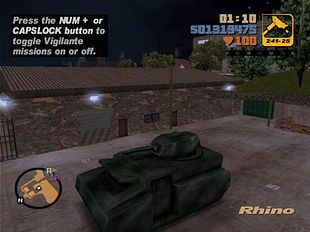
Even in this writers experience, playing 'Grand Theft Auto III' at a neighbours house was akin to experiencing what the moon landing must have been like for my parent's generation.
My neighbour had the cheat codes learned off by heart and he spawned a tank for me to mess around in.
The utter liberation and freedom associated with terrorising Liberty City in a tank is one of those moments that create a defining life moment.
After playing 'Grand Theft Auto III' this writer unsuccessfully tried to talk their parents into buying the game for them, so playing 'Grand Theft Auto III' became an illicit thrill that was substituted to birthday parties or hazy summer evenings.
It is said that members of Joy Division, The Fall and The Smiths were at the first Sex Pistols concert in June 1976 and helped birth what is now known by the masses as punk rock, and for gamers of a certain age, that chaotic liberty birthed by 'Grand Theft Auto III' served as a digital analogue.
Generation X, Generation Strange
The actual gameplay of 'Grand Theft Auto III' is actually fairly shoddy and weak by modern standards, and it's certainly not even the best 'Grand Theft Auto' game.
Picking a 'Grand Theft Auto' game to cover for this particular series was no easy task, as we could have picked 2002's 'Vice City', 2004's 'San Andreas' or 2013's 'Grand Theft Auto V', but those games built upon one of the most foundational games in video game history.
The next time you play a cookie-cutter sandbox game, keep in mind that the developers are sub-consciously trying to evoke and attempting to emulate the primal sense of freedom and joy that 'Grand Theft Auto III' gave players in 2001.
As stated 'Grand Theft Auto III' wasn't the first game that let players exit a vehicle and walk around a city, but it was the manner in which it went about it that made it explode.
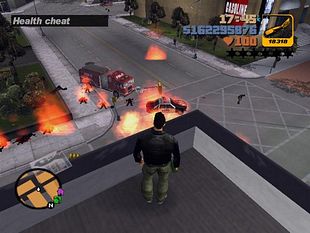
Rockstar's sense of humour horrified parents and delighted players, and in the context of culture in 2001, it was exactly what the market craved.
Culture in 2001 was in a decidedly different place compared to 2022.
In the music sphere, Limp Bizkit and Korn were among the biggest acts in the world, 'Jackass' was about to make its debut on MTV, 'Fight Club' had grown from a modest box office hit to cultural sensation, and Roy Keane was the sports star everyone wanted to emulate.
2001 was a year with attitude, and 'Grand Theft Auto III' captured that mood in a bottle.
After 'Grand Theft Auto III', it wasn't merely enough for a game to offer you a linear experience, players wanted total freedom and control.
Very few developers could do what Rockstar did in the early 2000s, and while we strongly considered giving 'Vice City' and 'San Andreas' their own articles, the punk energy of 'Grand Theft Auto III' and its subsequent influence on video game history as a whole makes it worthy of its own article.
Every tree grows from humble roots, and today 'Grand Theft Auto' is the biggest franchise in all of gaming.
In the wake of 'Grand Theft Auto III' any sandbox game was tagged as a 'Grand Theft Auto' clone by journalists and if you wanted to portray a media shorthand for graphic video game violence a film or television show would do a riff on 'Grand Theft Auto'.
The Rockstar Games of today are more interested in chasing revenue streams instead of pushing the envelope, but there is no denying that once upon a time they could bend the entire gaming industry to their will.
'Grand Theft Auto' making the jump from the top-down perspective to 3D was a pivotal point in gaming history, and Rockstar took that extra dimension to give players something that had never been seen before.
It is incredibly difficult to imagine modern video games without 'Grand Theft Auto III' - it truly is one of the seismic moments in video game history.
